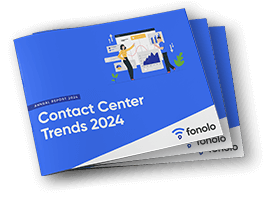Airline services have been scrambling to improve their customer service strategies and initiatives, making key investments to elevate the overall customer experience. JetBlue is one of the companies that has been actively looking to add value to its customers, using loyalty programs and other means to draw passengers on an international scale. The company recently partnered with Gladly Inc. in an effort to shave time from its customer service call volumes.
By partnering with the technology startup, JetBlue instantly became more customer-facing, and in doing so differentiated itself from other, less than stellar competitors. The airline introduced its software on flights so that the cabin crew would have a bird’s-eye view of information about customers on-board.
And customers are ‘on board’.
The Gladly software, which JetBlue plans to roll out next year, will allow thousands of in-flight crew members after testing it with dozens of employees. By looking at in-flight tablets, flight attendants could see whether a specific passenger boarded the plane after the frustrating experience of missing a different flight, and then offer them a gratuity in compensation of the inconvenience. The software can also prompt crew members to offer perks, such as new seating with more leg room, to its loyalty members who have issues during the flight (whether it be dietary or something technical like a broken view screen).
Gladly has raised more than $100 million in venture capital from investors including JetBlue Technology Ventures, the airline’s startup investing arm. The capital will allow the in-flight system to make booking, changing, and boarding flights similar to the customer experience of technology-focused companies such as Uber and Amazon.
By recognizing key trends in communications between companies and customers, major companies have had to realign their strategies to drive customer interaction and interaction. The challenge, many say, is to communicate using platforms that customers are using. The fact is that customers aren’t using phones and waiting for a number of minutes to get the answers they require. Whether it’s a chatbot online or technology like this — which is key because it’ll equip employees to respond quicker — it’s a part of the overall strategy to communicate for the purpose of retaining and growing the business and customer loyalty.
Firms are looking to decrease service costs by reducing the agent head count which leads to increased wait times if companies don’t implement self-service strategy to offset the shortfalls in communication. According to research from Aberdeena,
85% of businesses with contact centers are already using self-service capabilities to enable customers to help themselves.
And Jetblue has been able to figure it out. The company has been using Gladly’s software in its customer service centers for approximately three years. The research shows call center employees a timeline of each customer’s interactions with JetBlue, whether it’s text, email, or phone.
With the employee more equipped to handle customer complaints due to tracked information recorded in the software, customers are able to feel as though they are taken care of and important because the agent already knows what the issue is. They are able to address them by name, know where they’re going and instantly treat them as an important part of their overall goals —to get them where they need to be without hesitation or issue. The software also lets agents see a snapshot of the customer’s loyalty status, favorite seats, upcoming flights, and flight status in one central location.
The customers don’t even have to get off the plane.
Previously, JetBlue had five different systems that stored customer data. Now with just one location, they’ve been able to slice average call times by 40% over the last two years. According to Gladly, they’re saving between 30 seconds to five minutes on calls. With more than 2,500 call center agents using the platform, it costs about $150 per month per agent.
What’s great about partnerships like this is also just about data collection on a mass scale, which allows companies to share information about customer behavior. The result is that companies can collect data and information about customer interaction and behavior from a variety of different sectors.
At a time when a variety of companies in the travel, hospitality ,and retail space are trying to compete with major players in the digital space, it’s become imperative for companies to remove friction that costs them customers and sales.
This move underscores the importance of centralizing communications and using the technologies available to not only communicate with customers but to collect important data, data that identifies the common issues and occurrences negatively affect productivity and money.
Brands will do well to realize that self-service isn’t new and, while success isn’t limited to the use of these technologies, it’s important to use the tools that will help your business thrive.
JetBlue has seen instant success: Maybe you can, too.

Discover the Contact Center Trends That Matter in 2024
Dig into industry trends and discover the changes that matter to your business in the year ahead.